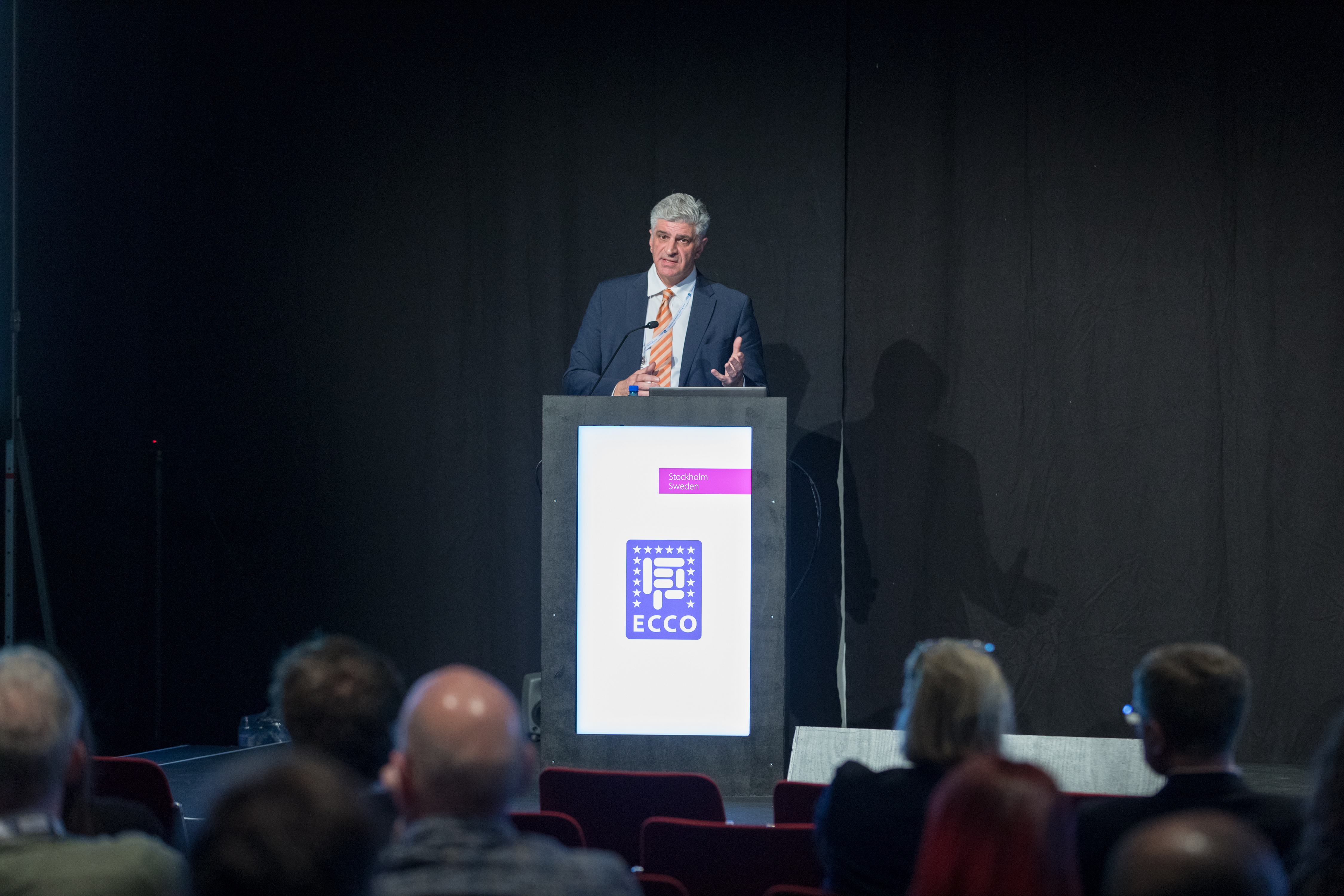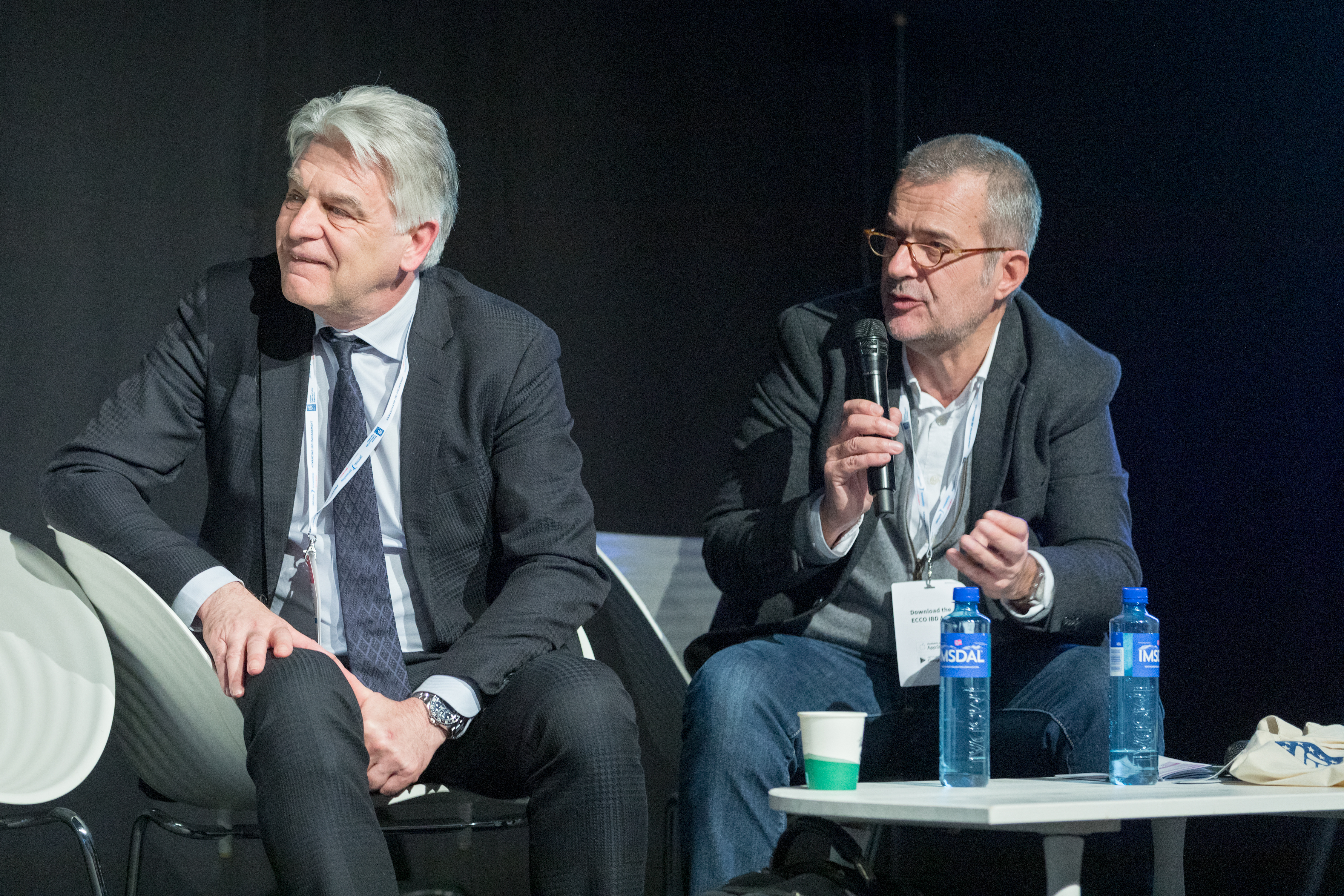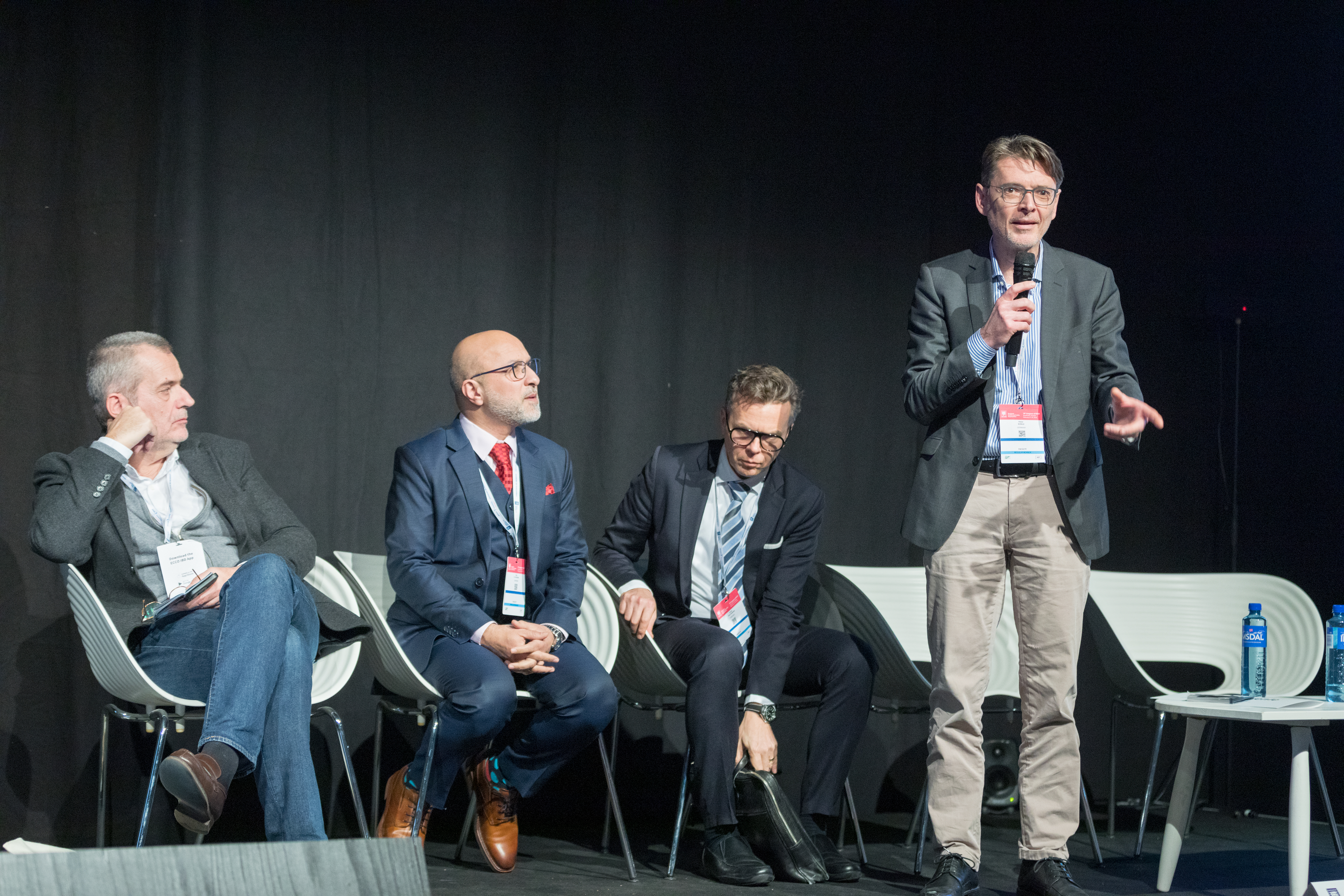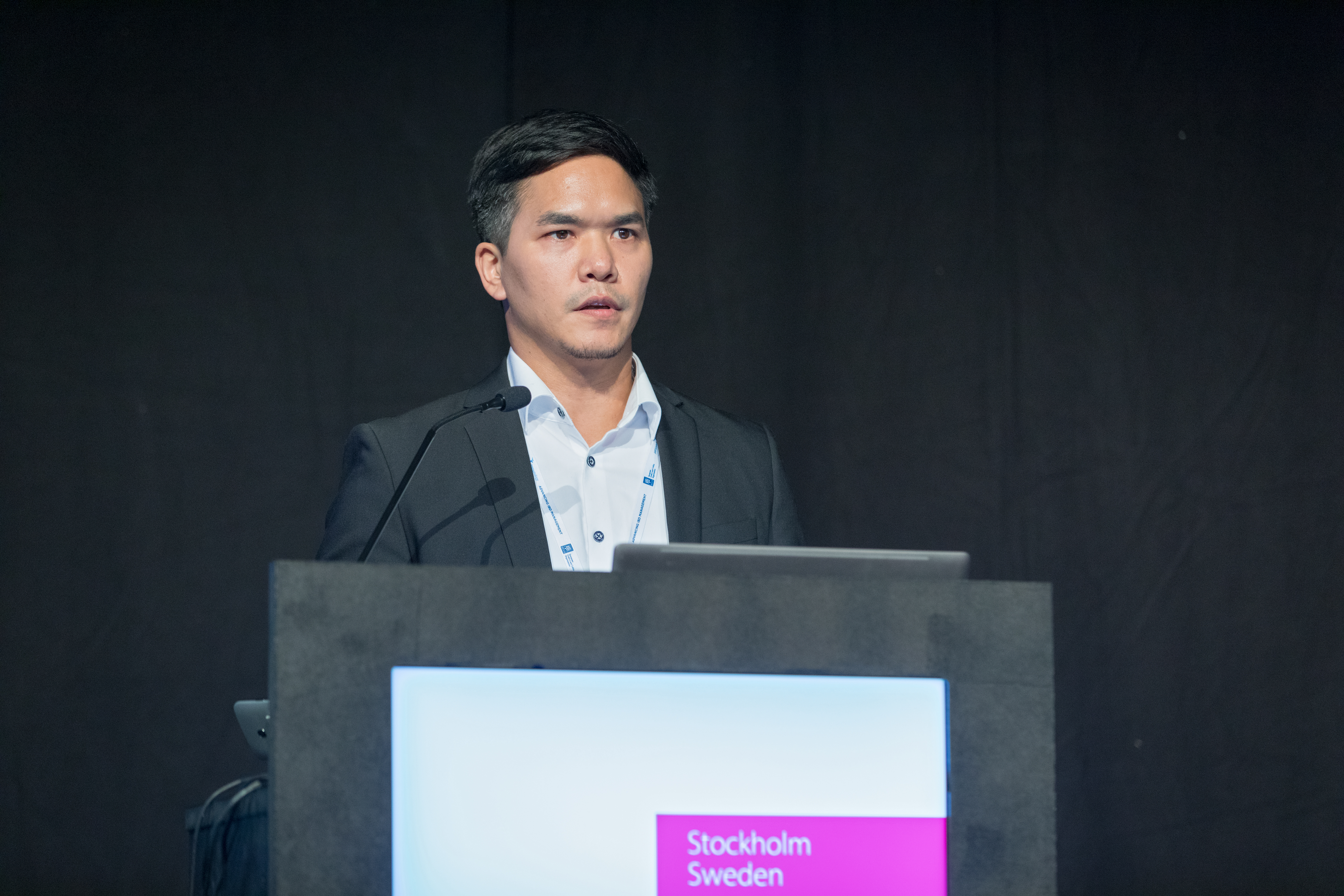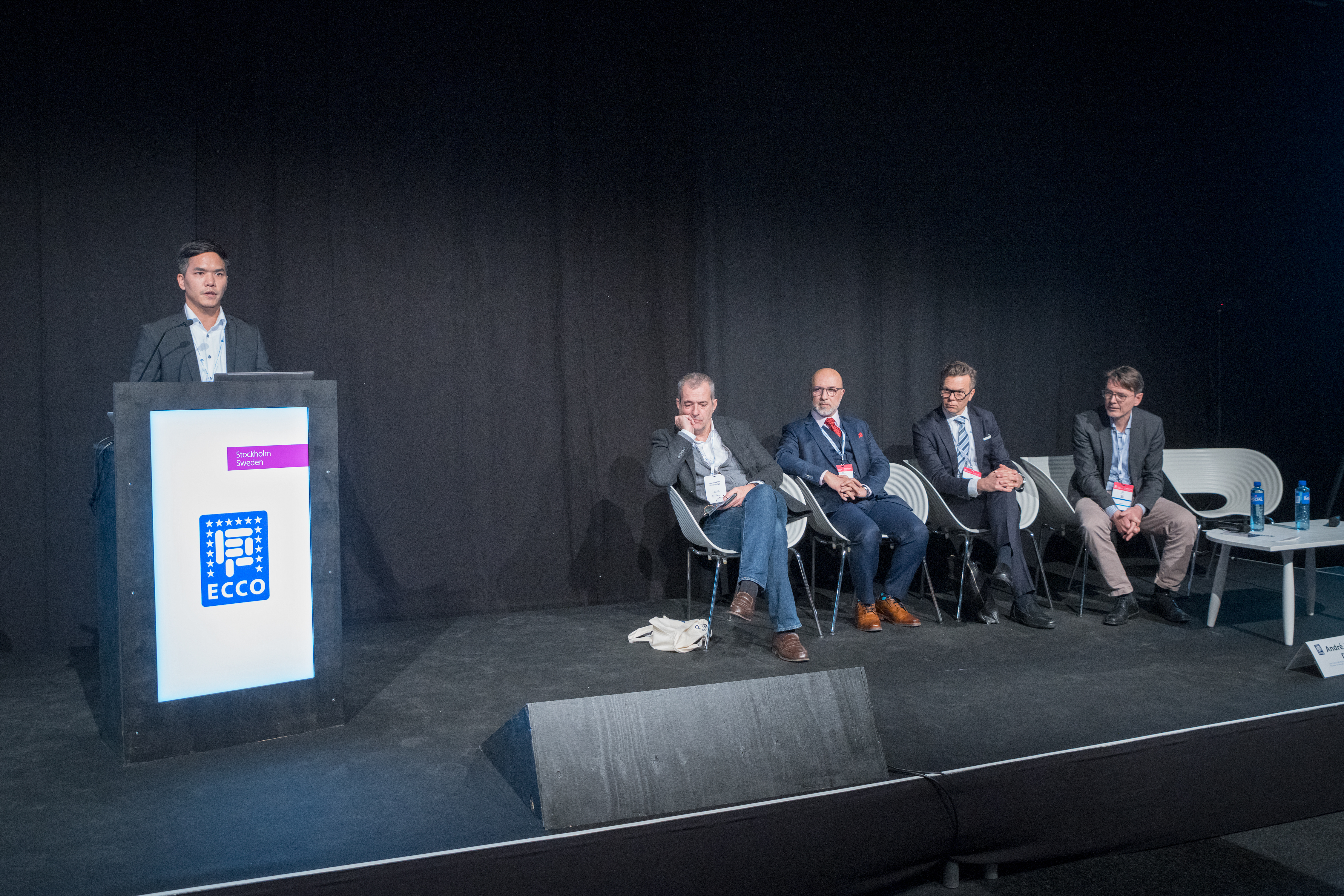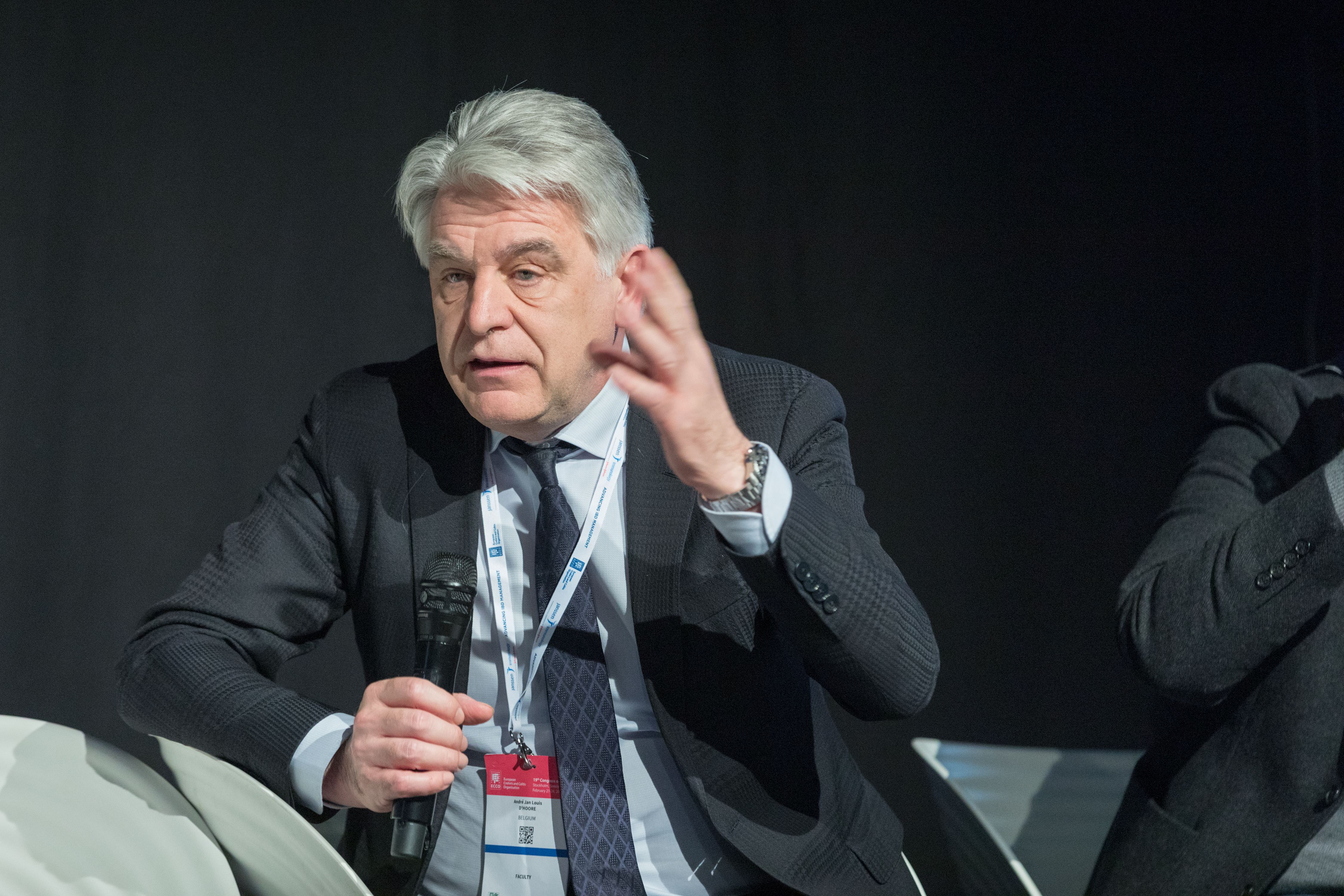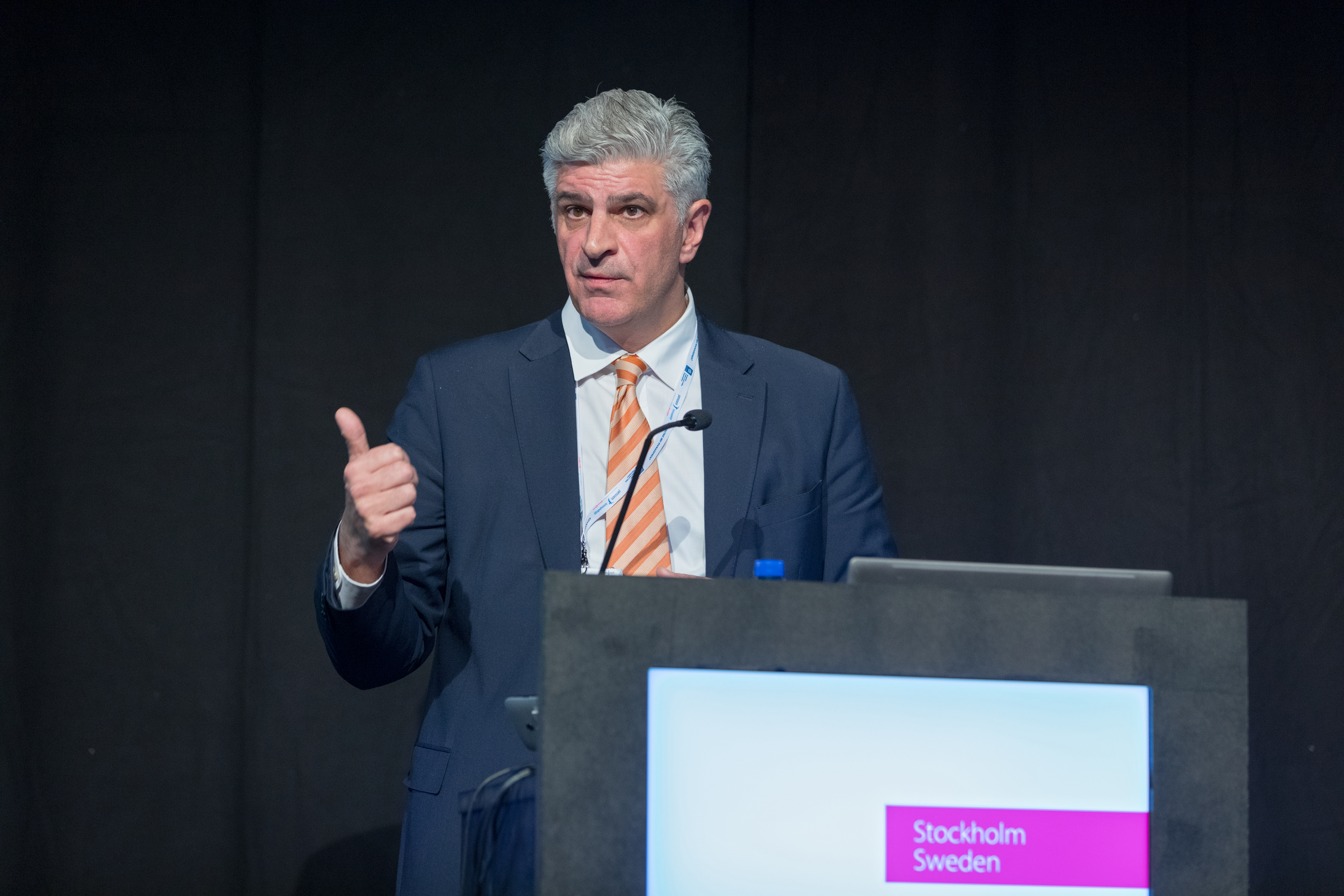Report on the 13th S-ECCO IBD Masterclass
Peter Kienle, S-ECCO Committee Member
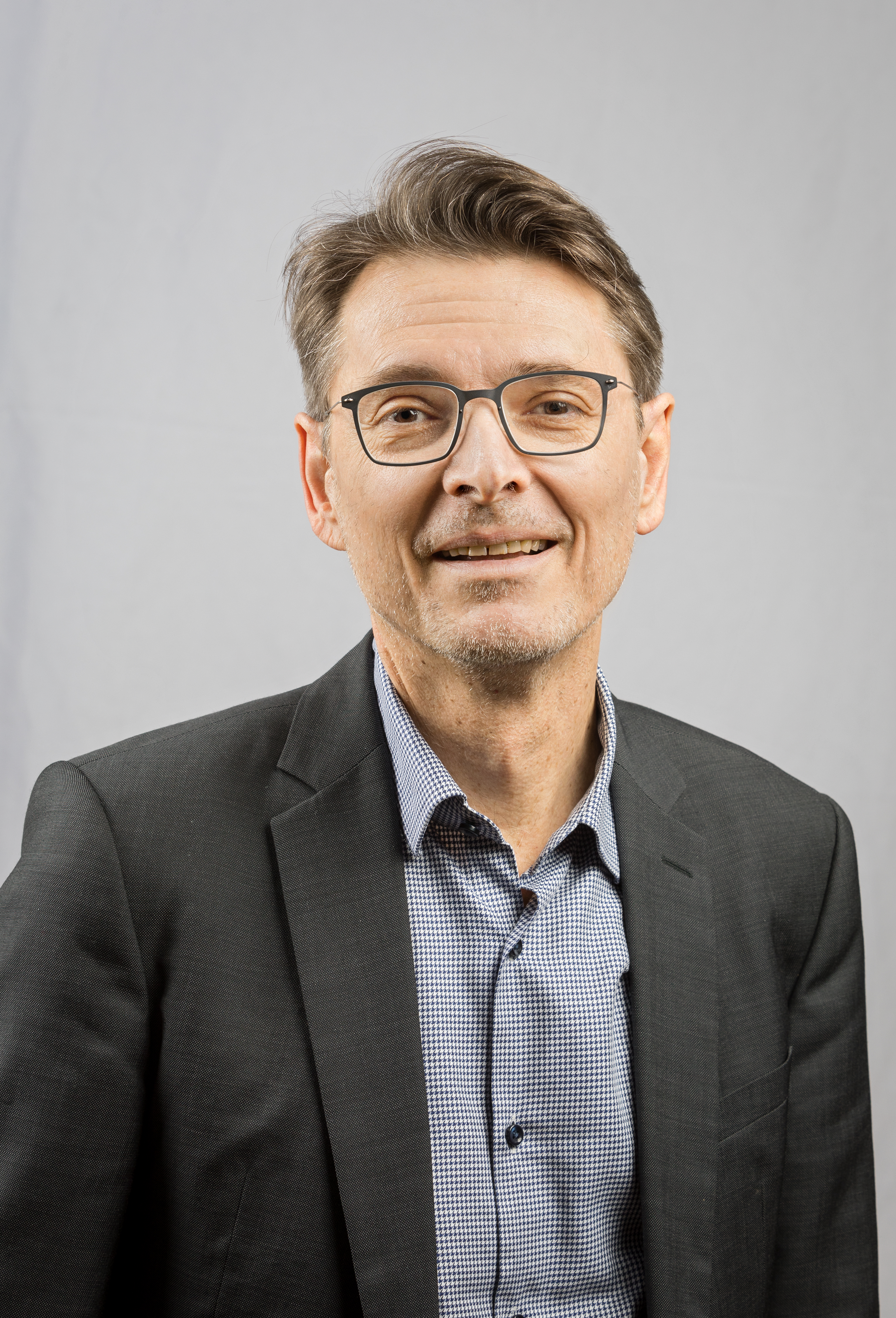 Peter Kienle Peter Kienle© ECCO |
The 13th S-ECCO IBD Masterclass within the 19th ECCO Congress completed a return to normality, this being the second time in a row that we were able to meet in person with colleagues focusing on IBD surgery without the ghost of COVID hovering above us. Pär Myrelid, having successfully and calmly steered S-ECCO through a challenging year, opened the first session and welcomed us heartily in his home country.
The first session was entitled “Timing is everything”. Within the context of IBD surgery this is a very important but also difficult topic. Naila Arebi introduced the session by talking about the global epidemiology of IBD and IBD surgery, pointing out that while an increasing incidence of IBD has led to more surgery, overall fewer patients are needing to undergo surgery. Pär Myrelid and Paulo Kotze then analysed the timing of surgery in Europe and the Americas, respectively, showing that while there are differences, the problem of delayed surgery or surgery performed too late is universal. Jonas Halfvarson then presented his own experiences and views on how to establish a dedicated, interdisciplinary national network treating IBD patients and thereby improving the results. Igors Iesalnieks closed the session by looking at the effects of surgical delays in Crohn’s patients in Germany on the basis of his own registry and put that into perspective with the lack of specific recommendations for timing of surgery in the national and international guidelines.
The second session looked at “new techniques to improve quality”. Marietta Iacucci in endoscopy and Alaa El-Hussuna in IBD surgery explained where artificial intelligence has already reached clinical practice and what can be expected in the coming years, providing a fascinating glimpse into the future. Two highly ranked abstracts followed, both of which will have an impact on IBD surgery. From Amsterdam, Eline Van Der Does De Willebois presented the early results of the multinational, randomised controlled SPICY trial comparing standard mesocolic sparing with radical mesenteric excision in ileocaecal Crohn’s Disease. The rate of endoscopic recurrence was identical in both groups but there was a trend towards more complications in the radical mesenteric excision group. Therefore, this study does not support more radical surgery in Crohn’s Disease, and the mesenteric sparing approach remains the standard. The second abstract examined the risk of kidney failure in a nationwide Swedish cohort with proven IBD, analysing the impact of a colectomy on this risk. Overall, nearly 9% of patients developed kidney failure and the rate was significantly higher after colectomy. Sub-group analysis identified patients undergoing total colectomy or colectomy with a stoma as the group at highest risk. These results will better allow stratification of groups at higher risk, which in turn may result in more intensive monitoring of such patients. Willem Bemelman then looked at wound healing and endoscopic recurrence and challenged whether the current endoscopic evaluation is valid, especially in stapled anastomosis. He brilliantly described the different types of healing, depending on the technique used. These thoughts will surely form the basis for new studies. Laura Hancock wrapped up the session by updating us on “new” anastomotic techniques and putting them into a rational perspective, bearing in mind that none of them have really proven their superiority as yet.
The third session started with a debate on perianal fistulas. Philip Tozer argued his case in favour of “minimising surgery and preventing sepsis” while Joline Elisabeth De Groof stated her case to “go for fistula closure”. My task was then to explain why “proctectomy is always too late” in such patients, concluding that management here remains very much experience based. The discussion after the presentations well reflected that there is still major scientific work to do in this field, one of the bases for this being the new classification of fistulas published by an international trial group in 2022.
Attention then turned to surgical techniques for pouch surgery with several state of the art video presentations. First, Antonino Spinelli presented his technique for performing a transanal single-stapled pouch-anal anastomosis (TTSS). Although the more recent study does not yield an advantage in regard to the anastomotic leak rate, it shows better results for some of the quality of life issues. Amy Lightner then presented a robotic ileoanal pouch procedure and Roel Hompes, a transanal minimally invasive surgery (TaMIS) approach, both videos being convincing. The discussion concluded that all of the above options are indeed viable, but that superiority of one or the other technique has not yet been proven in large randomised controlled multicentre studies. Alisa Hart wrapped up the session with a look at the problematic pouch, giving the audience insightful recommendations on how to adequately diagnose and treat affected patients.
Session 4 was all about dysplasia, with an endoscopist, a pathologist and a surgeon all presenting their views on the topic. Obviously, more accurate screening has improved the detection rate for early lesions, but histology, as the basis for further treatment, still has a problem in distinguishing early from late lesions. The last speaker, Omar Faiz, convincingly put everything into a proper perspective: surgery remains one of the pillars in the interdisciplinary treatment of dysplasia in IBD.
As in recent years, the closing session comprised the consultants’ corner. Munir Saifi from Mannheim presented a case with Crohn’s Disease and a stenosis in the rectum, which provided the basis for controversial, interdisciplinary discussion on how to manage such a patient.
Overall, the Masterclass in Stockholm with a new record number of 186 registrations was evidently a success with numerous profound presentations by experts in the field of IBD. And the Swedish were indisputably great hosts. The programme for the next Masterclass has already been drawn up, one of the main topics being challenges in IBD surgery, including challenges in different geographic regions and the role of appendectomy in U.C. And one of the aims is also to make it even more interactive. We are very much looking forward to seeing you all in Berlin in 2025 for the next ECCO Congress and Masterclass!
Browse through the gallery:
Pictures are subject to copyright © ECCO



